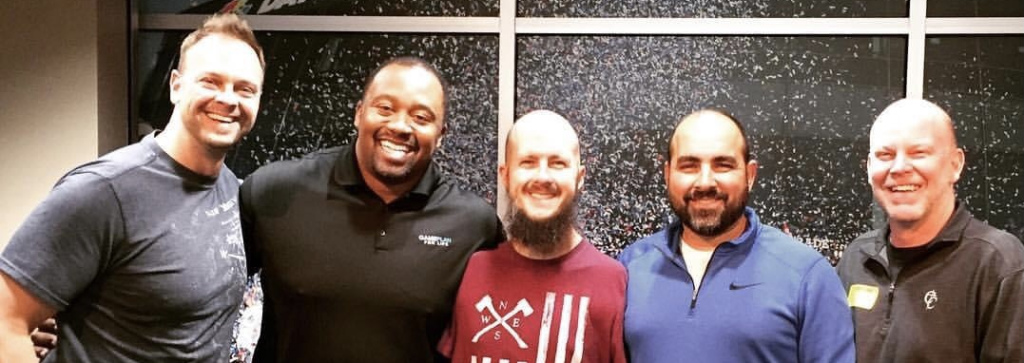
The Sin of Pursuing Sameness
So there we were — six of us seated around the table and enjoying each other’s company. Our distinct looking group began to elicit stares. Our group didn’t look like it should go together. At our table were a Lebanese/Brazilian pastor, a bearded pastor born without arms, a black theologian, a white church planter, a middle-aged prison ministry pastor with a massive beard, and a half white/half Argentinian church planter.
Judging our appearances alone, we didn’t seem like a likely group of friends. Factor in our different stages of life and cultural backgrounds, it would appear that there was little common ground among our group. We were six guys with different upbringings and different skin pigments. Regardless of our external and cultural difference, we are blood brothers.
Brothers Bought at a Price
We are not brothers in the biological sense, but we are brothers because of the remarkable work of Christ. We were ransomed by the same Savior, adopted into the same family, and given the same charge to go and spread the gospel. Our brotherhood has nothing to do with the family we were born into, but the family that Christ brought us into. Within that blood-bought family there is an instant depth and weight within the relationship that would otherwise be absent. It is the gospel family bond that brought us six acquaintances together.
Had I let external appearances keep me from spending time with these men, I would have missed a beautiful opportunity to be encouraged in ways I never knew. God’s grace was dripping in our conversation that night and drawing us together. It is the gospel of grace that saves the Jew and Greek, uniting us in the work of Christ (Galatians 3:28).
One of the final pictures we see from the book of Revelation is a countless number of people, from every language and corner of the world, worshiping before Christ (Revelation 7:9–10). Christ does what no man or movement can: He brings all manner of race and age underneath the same term — adopted. He chose men and women from every tribe, tongue, and nationality. Therefore, Christians should never let ethnicity, age, or socioeconomic background determine our meaningful relationships.
Sameness for Its Own Sake Is Sin
Examining the relationships in our lives can be a difficult step to take. Many of us have a circle of friends that look like we do, talk like we do, and dress like we do. That sort of uniformity can be the product of a number of factors like where we live and work. Who we engage and befriend is often a product of our circumstances. That is not a sign of harboring sin or being hateful.
However, the fractures in Christocentric love will arise if we exclude people solely on the basis of their skin tone, nationality, or even their age. The darkness of the human heart shows itself in the cultural favoritism of ethnocentrism or the selective hatred that racism brings. There is no place for either ethnocentrism or racism in the heart of the believer. The call for the believer to love your neighbor does not come with any sort of ethnic qualifiers.
In fact, Jesus paints the picture of “love your neighbor” in Luke 10:30–37 as he tells the parable of the good Samaritan. This traveling Samaritan is someone who stops to help a man who was nearly beaten to death. While Scripture is silent on what ethnicity this victim is, the assumption is he is not a Samaritan. This parable, which is painting the picture of perfect neighbor love, is of a Samaritan man who sacrifices a lot for another man who does not have much in common with him.
Ethnocentrism Crushed by the Gospel
To view the Good Samaritan through the lens of the Great Commission should produce in us a call to love without a preferential profile:
“Go therefore and make disciples of all nations, baptizing them in the name of the Father and of the Son and of the Holy Spirit, teaching them to observe all that I have commanded you. And behold, I am with you always, to the end of the age.” (Matthew 28:19–20)
God has laid the call on all of us to “go” and in doing that we are going to every tribe and nation. The God-centered, Christ-exalting, Bible-focused believer is one who is happy to have his church look like that of Christ’s church in Revelation 7. That will only happen if we are willing to sacrifice our ethnic ease for the sake of God’s gospel.
The same reality we preach to ourselves, that we are remarkably made in the image of God, to fend off our feelings of unworthiness must be the same reality we preach to ourselves about everyone else. The people in my family are made in the image of God. The people in my church are made in the image of God. The people on the other side of town or the other side of the world are made in the image of God. The burden of Genesis 1:27 is that we treat all of mankind in a way that lends itself to how God’s image-bearers ought to be treated.
We go to them. We spend time with them. We tell them of a remarkable gospel. We disciple them. Whoever “them” is may not wholly look and talk like “I” do. That is okay. We should pursue those who do not think like we do or who carry the same skin tone we do. When our relationships and discipleship opportunities start to look like God’s kingdom and not our own, that is when we may experience encouragement like we’ve never experienced it before.

